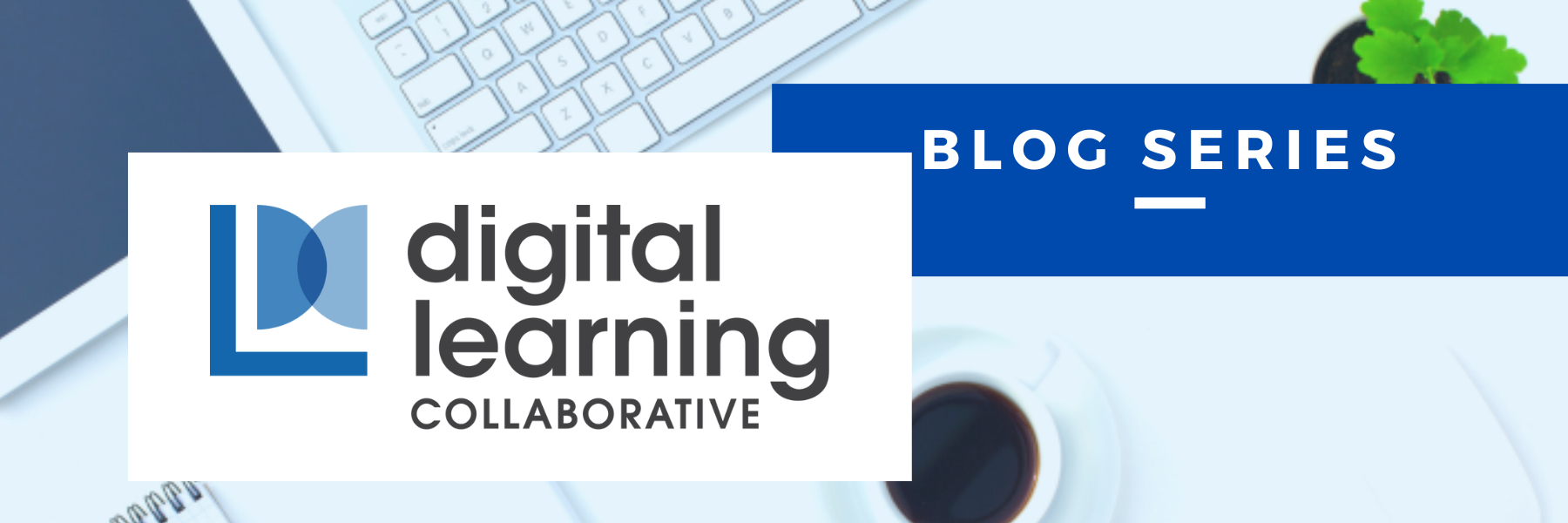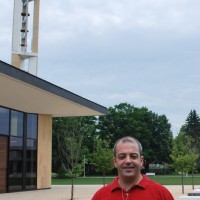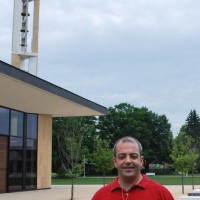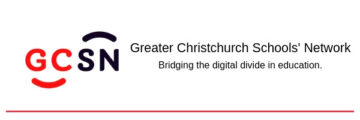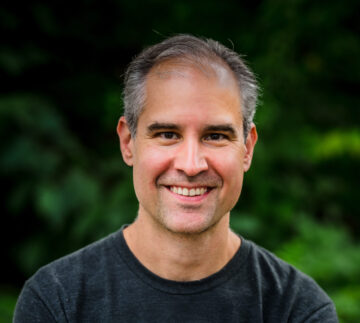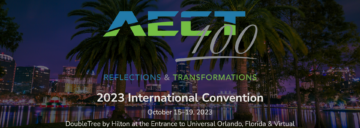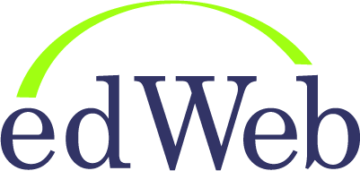March 2, 2024
Hats and cattle
An item from the folks at the Digital Learning Collaborative.
Having just left the conference that John references below, I have to be honest and say I also saw a lot of room for optimism. At the same time, I also saw a lot of reason to be cautious about John’s statement that “Education systems, education policies, leave too many students behind. That’s not a new observation, and as such it could be depressing.” While I agree that it could be depressing, the implication in John’s post is that through digital learning policies – like those supported by Evergreen and the Digital Learning Collaborative, as well as those showcase at the Digital Learning Annual Conference – were solutions to ensuring that students wouldn’t be left behind.
The reality is that we have over two decades of data that don’t support K-12 online learning policies designed to open up markets and increase competition so that students could select the best learning opportunities. What we do have is decades of data that show that competition and free market solutions to education problems creates great potential for individual and corporate profit, but often creates greater inequity and leaves a greater number of students behind. The reality of American education – and I’d argue American society in general – is that decades of free marketing, individualistic thinking has turned American – and its education system – from being the shining city on the hill to little more than a mirage of splendor that is really just a bunch of dust.
Hats and cattle
BY JOHN WATSON
This post is based on the prepared remarks that I delivered at the Digital Learning Collaborative awards ceremony at DLAC in Austin on Tuesday, February 27, 2024. I took the stage wearing a black cowboy hat that I’d picked up at a Goodwill in Tempe, Arizona four days prior. Some people told me I looked ridiculous and it’s hard to disagree, but that’s not really the point.
Where I live in a rural part of a western state, it’s not too unusual to hear someone mocked as “all hat and no cattle.” The insult is based on the people who pretend they are ranchers, cowboys, hardened guys (almost always guys), despite having no more link to difficult physical labor than I have. And of course, like any good insult, it’s flexible and you don’t actually have to be wearing a cowboy hat to be a target. It’s an effective commentary towards anyone who talks more than they act, pretends to be something that they are not, pretends to be doing something when they are not.
To be clear, I’m not commenting on people who wear cowboy hats or boots in good fun. They know what they’re doing, and they’re not trying to fool anyone nor hide behind a façade. They don’t think they are cowboys anymore than people going to renaissance fairs think they’re living in the Middle Ages.
And to be even more clear, if you’ve seen me in this cowboy hat here in Austin, I’m firmly in the “this is fun and funny” category. I’ve been on a horse fewer than half a dozen times, and the only time my horse got going faster than a slow trot it was exhilarating for about 15 seconds and then terrifying. And then exhilarating again when I realized I’d survived.
Why am I up here talking about cattle and horses, other than as an excuse to wear this hat?
Because you can flip this insult around into a compliment, and that compliment describes DLAC attendees, Digital Learning Collaborative members, and most of all, our DLC Award winners.
Who’s the opposite of the “all hat, no cattle” people?
It’s the people who are head down, focused on building their schools and programs, working with teachers, changing policies, all to serve the students most in need. The people who are too busy doing the work to sing their own praises. They—YOU—are providing paths for families seeking new options, for students who are otherwise out of options. You don’t count press releases, you count students graduating, to the next grade, the next school, or on to the next stage in their lives. Students who might not have gotten to that next stage if your school, course, program, didn’t exist. Or students who were already doing well, but needed the rocket fuel of new opportunities to take off to a new level. Your students are in different stages, all have different paths, and what they have in common was they needed something new and different to get them on their own path to reach their own full potential.
As I was waiting for my flight to Austin to take off, I happened across a blog post from a teacher in New York City. I’m paraphrasing a bit here to simplify the point, but this is very close to the original:
“I had become acutely aware of a depressing and frightening reality…: that too many of our most vulnerable children’s futures depended not on the efficacy of systems—on policy—but on the altruism of adults. That the only thing that the prevented us from descending into anarchy was that enough people chose to do the right thing.”
That teacher wrote that post about a very specific situation, but the larger reality rings true. Education systems, education policies, leave too many students behind. That’s not a new observation, and as such it could be depressing.
But it’s not depressing here at DLAC, because what I see here in Austin is the altruism of just about everyone here—from the people who are working to shift those systems, to the people who are working with individual students—and all the people in between who make this effort work.
And make no mistake—it is working. Your efforts are working. Millions of students have better opportunities and outcomes because of the work you’ve done, whether they are in online schools, online courses, hybrid schools, blended classrooms, dual credit, CTE, or elsewhere. Sometimes that seems overlooked, as those who tilt at the windmills of education transformation ignore what’s already benefited these millions of students.
That’s why we’re here. DLAC gives everyone the chance to tell their stories—which can mean challenges and temporary failures as much as successes. We hear your stories, and we want to amplify them.
And to that end, we have the nearly impossible task every year of picking a few people, schools, and stories to highlight.
I can’t wait to share with you the stories of the amazing folks we recognize this year with DLC Awards, but that’s for next time…
View email in browser
Evergreen Education Group · 700 Main Ave Ste E · Durango, CO 81301-5437 · USA
No comments yet.
RSS feed for comments on this post. TrackBack URI
- SEO Powered Content & PR Distribution. Get Amplified Today.
- PlatoData.Network Vertical Generative Ai. Empower Yourself. Access Here.
- PlatoAiStream. Web3 Intelligence. Knowledge Amplified. Access Here.
- PlatoESG. Carbon, CleanTech, Energy, Environment, Solar, Waste Management. Access Here.
- PlatoHealth. Biotech and Clinical Trials Intelligence. Access Here.
- Source: https://virtualschooling.wordpress.com/2024/03/02/hats-and-cattle/
- :has
- :is
- :not
- $UP
- 05
- 12
- 15%
- 2%
- 2024
- 27
- 700
- a
- About
- across
- Act
- actually
- adults
- again
- Ages
- agree
- All
- almost
- already
- also
- always
- am
- amazing
- American
- amplify
- an
- Anarchy
- and
- annual
- any
- anymore
- anyone
- ARE
- argue
- arizona
- around
- AS
- At
- attendees
- austin
- auto
- ave
- award
- awards
- aware
- based
- BE
- because
- become
- been
- begin
- behind
- being
- below
- BEST
- Better
- between
- Bit
- Black
- Blog
- Boots
- Building
- Bunch
- busy
- but
- by
- CAN
- Category
- cattle
- cautious
- Center
- ceremony
- challenges
- Chance
- changing
- chose
- City
- clear
- Close
- CO
- collaborative
- comment
- Commentary
- Commenting
- comments
- Common
- competition
- Conference
- Corporate
- could
- count
- course
- courses
- creates
- credit
- data
- Days
- decades
- delivered
- depended
- describes
- designed
- Despite
- different
- difficult
- digital
- do
- doing
- done
- Dont
- down
- dozen
- dual
- Dust
- e
- Education
- Effective
- efficacy
- effort
- efforts
- elsewhere
- end
- enough
- ensuring
- Even
- Evergreen
- Every
- everyone
- exhilarating
- exist
- façade
- failures
- fairs
- families
- faster
- February
- feedback
- few
- fewer
- firmly
- flexible
- flight
- Flip
- focused
- For
- four
- Free
- from
- Fuel
- full
- fun
- Futures
- General
- get
- gives
- going
- good
- Goodwill
- got
- grade
- great
- greater
- Group
- had
- Half
- happened
- Hard
- hardened
- hat
- Have
- having
- head
- hear
- here
- Hide
- Highlight
- honest
- Horse
- How
- HTTPS
- Hybrid
- i
- identifier
- if
- ignore
- impossible
- in
- Increase
- individual
- Insult
- into
- IT
- ITS
- John
- just
- Know
- labor
- larger
- learning
- Leave
- leaves
- left
- Level
- like
- LINK
- little
- live
- Lives
- living
- looked
- Lot
- Main
- make
- many
- Market
- Marketing
- Markets
- me
- mean
- Members
- Meta
- Michael
- Middle
- might
- millions
- Mirage
- more
- most
- much
- my
- nearly
- Need
- needed
- New
- New York
- next
- no
- nor
- number
- observation
- of
- off
- often
- on
- online
- Online Learning
- only
- open
- opportunities
- opposite
- Optimism
- Options
- or
- original
- Other
- otherwise
- our
- out
- outcomes
- over
- own
- part
- path
- paths
- People
- physical
- picked
- picking
- plato
- Plato Data Intelligence
- PlatoData
- pm
- Point
- policies
- Post
- potential
- prepared
- presentation
- press
- Press Releases
- prevented
- Prior
- problems
- Profit
- Program
- Programs
- providing
- reach
- Reality
- realized
- really
- reason
- recognize
- reduce
- references
- Releases
- Renaissance
- resource
- right
- rocket
- Room
- Rural
- same
- saw
- say
- School
- Schools
- seconds
- see
- seeking
- seems
- seen
- select
- serve
- Share
- shift
- shining
- show
- showcase
- Simple
- simplify
- site
- situation
- slow
- So
- Society
- Solutions
- some
- Someone
- something
- sometimes
- spam
- specific
- Stage
- stages
- State
- Statement
- Stories
- Students
- successes
- such
- support
- Supported
- Survived
- syndication
- system
- Systems
- TAG
- Take
- talking
- Talks
- Target
- Task
- teacher
- teachers
- tell
- temporary
- terrifying
- than
- that
- The
- their
- Them
- then
- These
- they
- thing
- Think
- Thinking
- this
- this year
- those
- Through
- time
- times
- to
- told
- too
- took
- top
- towards
- Transformation
- true
- trying
- Tuesday
- Turned
- two
- under
- unusual
- us
- uses
- very
- Vulnerable
- wait
- Waiting
- want
- was
- we
- wear
- WELL
- were
- Western
- What
- when
- whether
- while
- WHO
- why
- windmills
- winners
- with
- WordPress
- Work
- working
- wrote
- year
- yet
- york
- you
- Your
- zephyrnet

